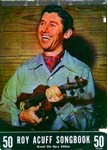|
Buddy Harman, the percussion heartbeat of Music Row and
Nashville's best-known and most-recorded drummer, died Thursday evening in
hospice care. He was 79, and suffered from congestive heart failure.
A native Nashvillian born Murrey Mizell Harman Jr., Mr. Harman played drums
on more than 18,000 recordings, including Roy Orbison's
"Oh, Pretty Woman," Patsy Cline's "Crazy,"
Johnny Cash's "Ring of Fire," Tammy Wynette's
"Stand By Your Man," Ray Price's "Crazy Arms"
and Elvis Presley's "Little Sister." He was the first
staff drummer on the Grand Ole Opry and the first prominent
drummer in country music history, and his work helped secure country's place
as a viable, popular and modern art form.
"Buddy Harman set the standard, both quantitatively and qualitatively, for what a
great country drummer should be," wrote David Cantwell in
Heartaches by the Number: Country Music's Greatest Singles. "The mind
boggles at the number of musically distinctive and emotionally fitting ways
Harman found to lay down a beat."
Mr. Harman was a master of the hard-driving country shuffle (which he helped
invent during the "Crazy Arms" session), and he was enough
of a musical chameleon to play pounding rock 'n' roll on "Pretty Woman";
stately, restrained pop on "I'm Sorry"; graceful swing
on Roger Miller's "King of the Road"; and
straight-ahead country on Loretta Lynn's "Coal Miner's Daughter."
"He's Nashville's all-around drummer, and he's the best drummer I ever
worked with," said Harold Bradley, who played on thousands
of records with Mr. Harman.
Both of Mr. Harman's parents played music, and his mother was a
drummer. He grew up fascinated by the instrument, and he attended the
Roy Knapp School of Percussion in Chicago. He took the nickname "Buddy" in
honor of his hero, jazz drummer Buddy Rich.
Nashville session guitar ace Grady Martin was an early supporter,
and Martin saw to it that Mr. Harman got a chance to play on
a Moon Mullican session in September 1951, when Mr. Harman
was 21. The session produced no hits, but Mr. Harman demonstrated his ability to lock in with other players, and he soon found himself in demand at a time when Nashville began to assert itself as a recording capital.
In the early 1950s, drums were, at best, an afterthought in Nashville
music. Sometimes they were actually forbidden. Mr. Harman joined
Carl Smith's band, and when Smith played the Opry,the
show's management didn't allow Mr. Harman to so much as bring a snare
drum on stage. Instead, Mr. Harman used brush sticks to play a "drum head" that
was affixed to an upright bass. It was, Mr. Harman admitted, "very silly looking."
Jerry Carrigan played drums on Southern soul classics recorded in Muscle
Shoals, and in the mid-1960s he headed to Nashville. In Music City, Carrigan looked
to Mr. Harman as a mentor.
"He was the cat," Carrigan said. "I remember him with red pants, red shirt
with the collar turned up, a black belt and black boots. He always had the
coolest car and the coolest drums. And he was the consummate studio musician."
While the driving rock drum parts Mr. Harman played in the 1950s
and '60s compel many listeners, Carrigan said his most impressive talent might
have been the ability to play at low volumes and still bring a groove to the song.
"Most people can't play soft with any feel," Carrigan said. "Buddy was
articulate at any dynamic or tempo. Anybody that says they didn't copy
Buddy is a liar. He was an innovator. I'm telling you, man, the guy was
unbelievable."
Bass player Bob Moore, who joined with Mr. Harman to complete
the rhythm section on thousands of records, credits Mr. Harman not only with
musical virtuosity but also with an emotional intelligence that helped sessions
feel comfortable and friendly.
"He had such a great musical mind, but he was also such a kind, nice
person," Moore said. "Buddy was funny in the studio, and he kept everybody feeling good."
Mr. Harman's temperament was a key element in his ability to mix with musicians
of different stripes, in potentially exhausting work conditions. In the 1960s,
Nashville's first-call session players often worked on three sessions a day.
The men would get their hair cut at the studio, because there was no time to drive
to an appointment.
In the studio, Mr. Harman also sought new ways to produce percussion sounds.
On the Everly Brothers' "Till I Kissed You," he tuned
his drums to produce a resonant, ringing "answer" to the vocals. On another
session, he made a clicking sound by lightly striking a guitar neck with
his drumsticks. Many times, he played brush sticks against a cardboard box.
"I asked him once what the strangest thing he played was,"
Bayers said. "He said, 'a spare tire.' I said, 'Two-ply or four-ply?' "
Mr. Harman is survived by his wife, Marsha Harman; daughters Autumn
Harman of Nashville and Summer Harman of Mt. Juliet; sons Mark Harman
of Franklin, Stanley Harman of Nashville and Murrey M. Harman III of Nashville; six grandchildren and four great-grandchildren; and brothers Bob Higley and Richard Higley, both of Jacksonville, Fla. Son Richard Harman preceded Mr. Harman in death.
In lieu of flowers, donations may be made to Alive
Hospice, 1718 Patterson St., Nashville, TN 37203.
Services will be at 11 a.m. Tuesday, Aug. 26, with visitation one hour
before service time at Brentwood-Roesch-Patton Funeral Home,
9010 Church St. E., Brentwood, TN 37027. 615-373-3040.
Other Related Articles:
(Note: Some news media sites
require user registration to read articles and/or to send you 'targeted' email
from advertisers.)
|



